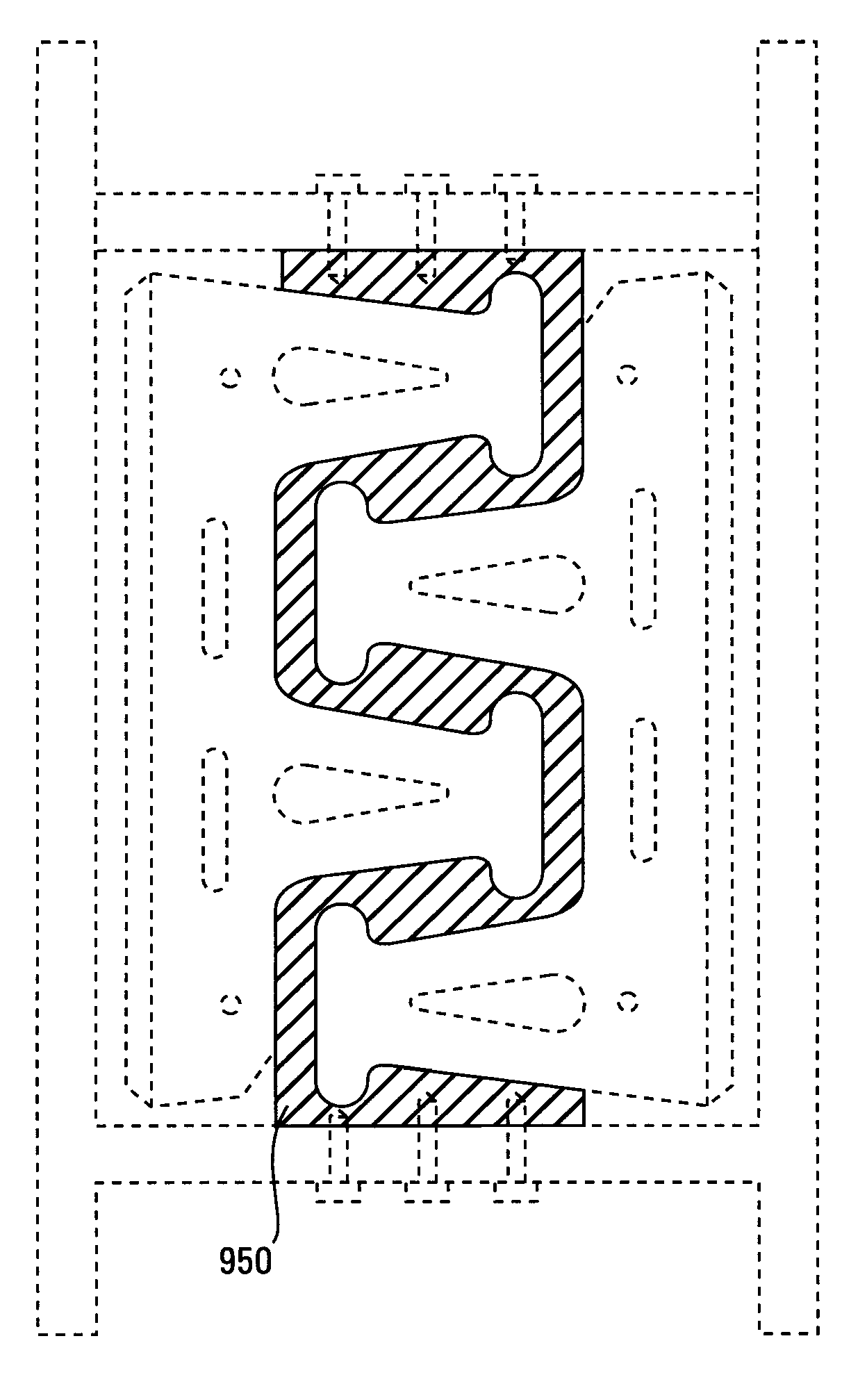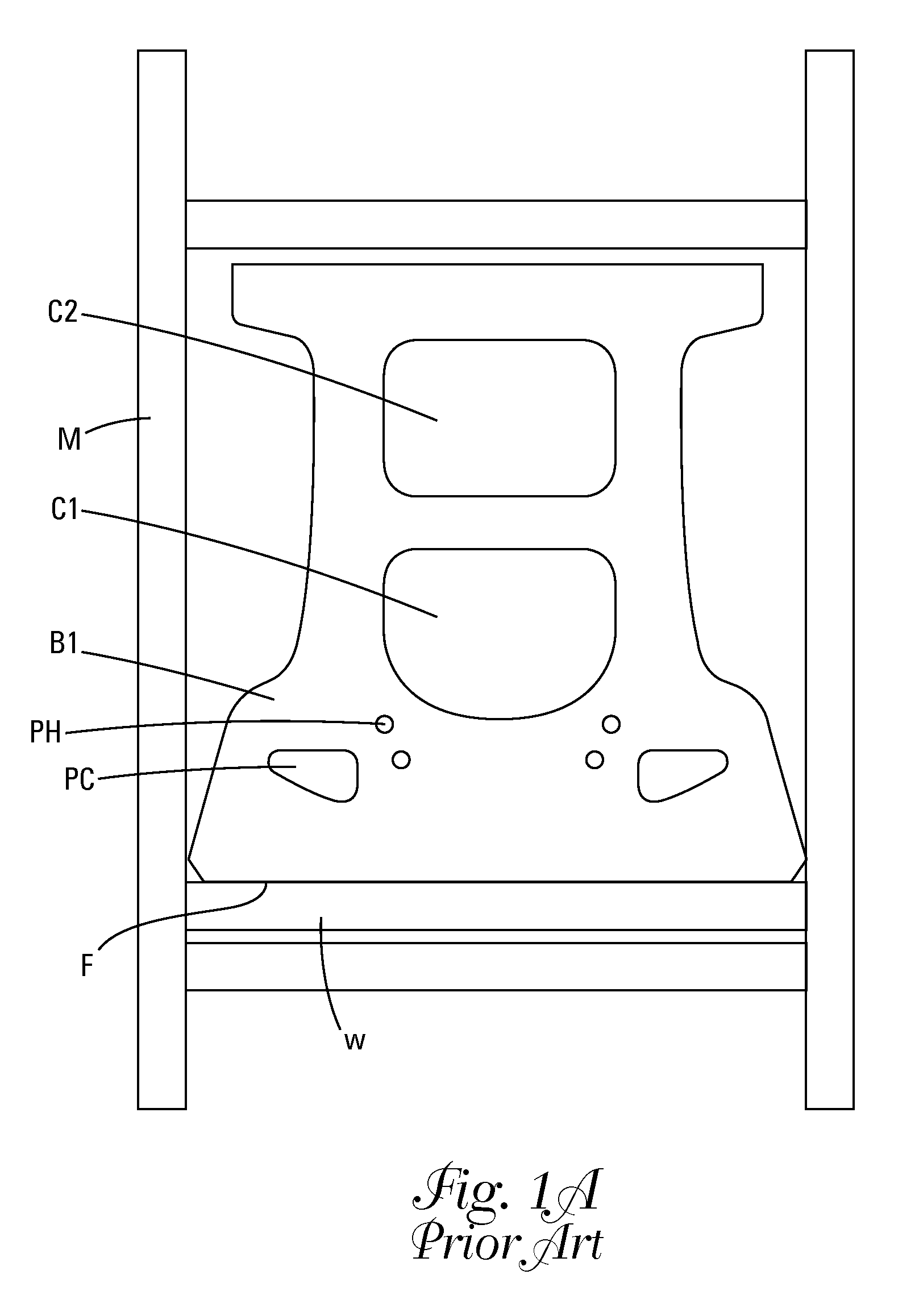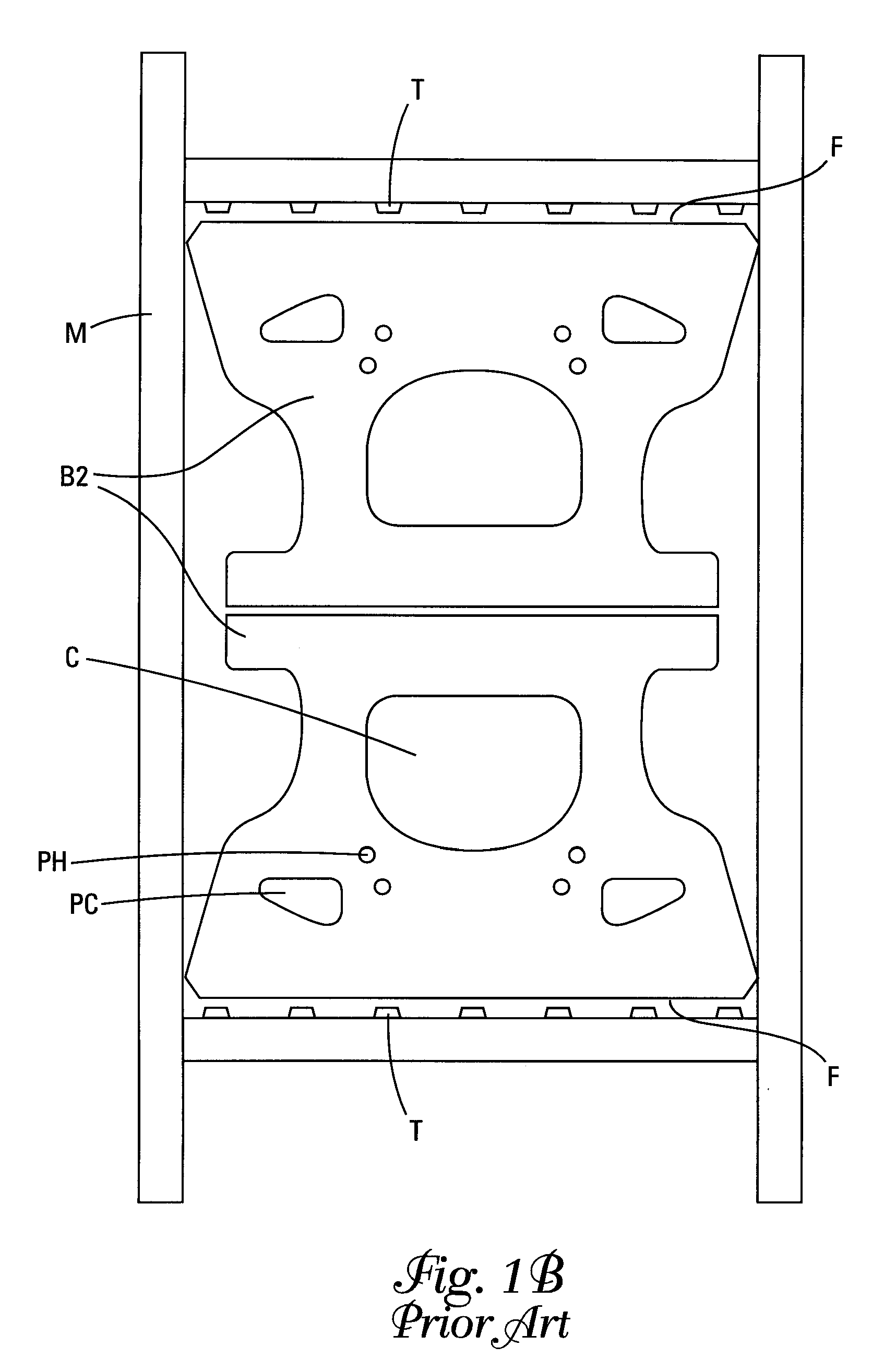Mold box for making first and second wall blocks
a mold box and wall block technology, applied in manufacturing tools, applications, lighting and heating apparatus, etc., can solve the problem of block weight of about 250 lbs (113.6 kg), and achieve the effect of maximizing the use of the mold box, large surface area, and convenient handling
- Summary
- Abstract
- Description
- Claims
- Application Information
AI Technical Summary
Benefits of technology
Problems solved by technology
Method used
Image
Examples
Embodiment Construction
[0042]In this application, “upper” and “lower” refer to the placement of the block in a retaining wall. The lower surface faces down, that is, it is placed such that it faces the ground. In forming a retaining wall, one row of blocks is laid down, forming a course. A second course is laid on top of this by positioning the lower surface of one block on the upper surface of another block.
[0043]The blocks of this invention may be made of a rugged, weather resistant material, such as concrete, especially if the wall is constructed outdoors. Other suitable materials include plastic, reinforced fibers, and any other materials suitable for use in molding wall blocks. The surface of the blocks may be smooth or may have a roughened appearance, such as that of natural stone. The blocks are formed in a mold and various textures can be formed on the surface, as is known in the art.
[0044]Several embodiments are illustrated in the figures below. In one embodiment, this invention is a block compri...
PUM
| Property | Measurement | Unit |
|---|---|---|
| distance d2 | aaaaa | aaaaa |
| distance d2 | aaaaa | aaaaa |
| distance d3 | aaaaa | aaaaa |
Abstract
Description
Claims
Application Information
 Login to View More
Login to View More - R&D
- Intellectual Property
- Life Sciences
- Materials
- Tech Scout
- Unparalleled Data Quality
- Higher Quality Content
- 60% Fewer Hallucinations
Browse by: Latest US Patents, China's latest patents, Technical Efficacy Thesaurus, Application Domain, Technology Topic, Popular Technical Reports.
© 2025 PatSnap. All rights reserved.Legal|Privacy policy|Modern Slavery Act Transparency Statement|Sitemap|About US| Contact US: help@patsnap.com



